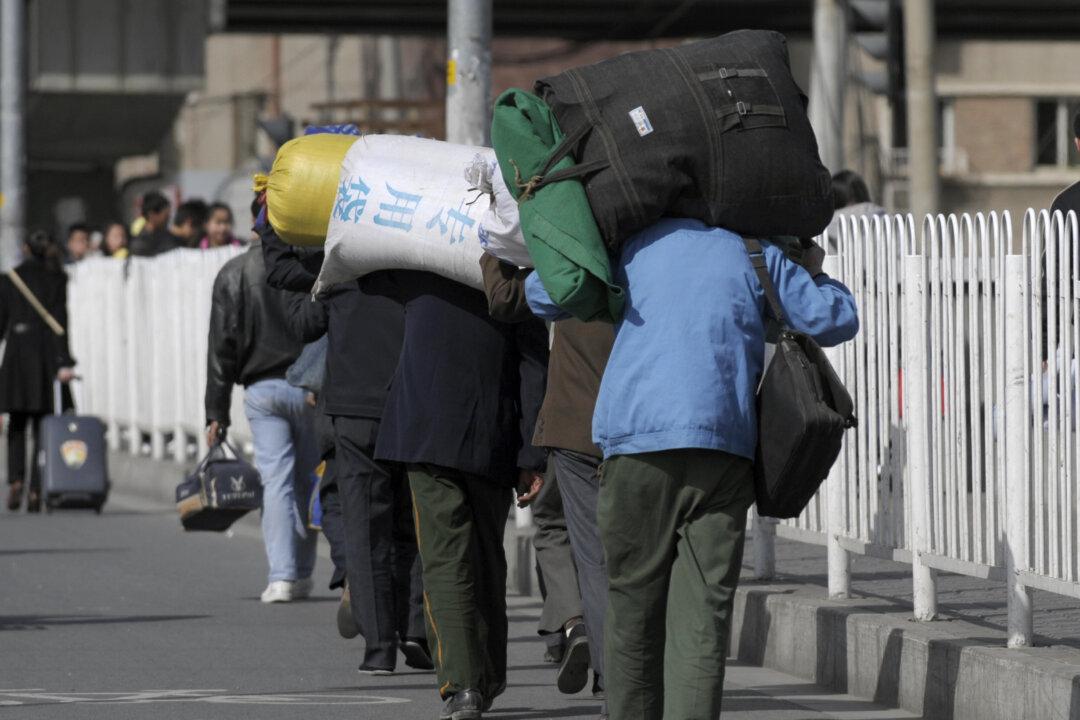The story of a migrant worker in Beijing who caught COVID-19 while searching for his missing son provoked shock and sympathy on social media on Jan. 20, and drew attention to the hardships faced by the floating populations in China’s big cities.
On Wednesday, city officials said that an asymptomatic case of the novel coronavirus had been detected in a 44-year-old man they identified by his surname Yue in the affluent Chaoyang district. His frequent and wide-ranging movements around the city, at odd hours, were widely discussed online.
Social media users declared Yue the “hardest-working person among the floating population”—a hashtag that amassed over 60 million views on Twitter-like Weibo, and drew attention to the deep inequality in China given that last year the communist regime called for achieving “common prosperity.”
In interviews with local media, the former fisherman from central China’s Henan province said that he had arrived in Beijing last year, knowing his son, 21-year-old Yue Yuetong, had worked as a cook in the capital.
Since then, the elder Yue took odd jobs, from garbage collection to moving construction materials, and is the main breadwinner for a six-person household, including his paralyzed father.
Yue, who is being treated for the virus in a Beijing hospital, told China News Weekly that since his son’s disappearance in August 2020 he had worked in several provinces searching for him. In Beijing, Yue earns around 200 to 300 yuan ($32-$47) per shift and sleeps four to five hours a day.
“I don’t think I’m pitiful, I just want to do my work well, not steal or rob, rely on my own strength, my own two hands, make some money, and find my son,” he told state-runChina News Weekly.
Yue’s son, who turns 21 this year and is among China’s roughly 285 million migrant workers who move to cities seeking work and a better life, was last seen in a bus station in Rongcheng, Shandong province, according to Yue in an interview with the state-run Beijing News that was later deleted.
Yue said he tried to seek help from police stations in Rongcheng city and Weihai city, but they refused to investigate, according to China News Weekly.
As of Thursday evening, the report has been banned from being shared on Wechat, another Chinese social media platform.
Reuters was unable to reach Yue, whose story emerged as Beijing is on high alert for the spread of the Omicron variant ahead of Winter Olympics and as COVID-19 lockdowns once again disrupt travel plans ahead of China’s Lunar New Year holiday when workers, including migrants such as Yue, typically return home for family reunions.
Some social media users drew attention to the disparity between Yue’s movements and another recent COVID-19 case in Beijing who went to a ski resort and a jewelry store before testing positive for the virus.
“I don’t know whether ‘common prosperity’ is empty words but it’s the government’s responsibility to ensure every worker can live respectably,” said another Weibo user who goes by firetrap-virtuallife.





